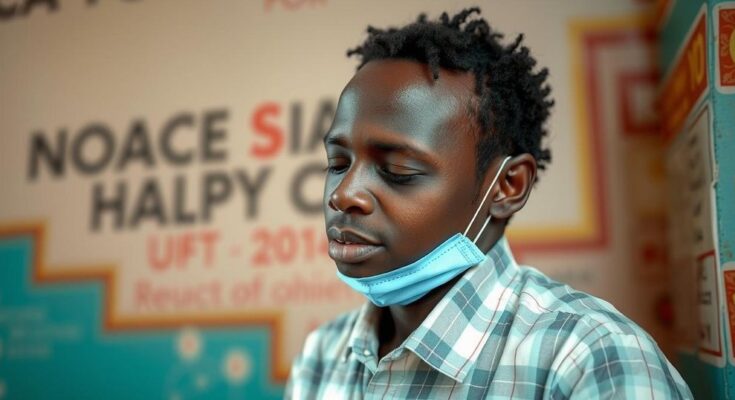An unidentified illness, referred to as Disease X, is spreading in the DRC, particularly in the remote Panzi district. With 406 cases and 31 deaths reported, health officials suspect it may stem from known diseases but face challenges including limited testing facilities and logistical issues. Collaborative investigations are underway to identify and combat the outbreak.
The Democratic Republic of the Congo (DRC) is currently facing an enigmatic illness referred to as Disease X, with 406 suspected cases and 31 reported fatalities, primarily among malnourished children. Occurring in a remote region of the Panzi district, the disease presents flu-like symptoms but remains undiagnosed, leading health officials to speculate that it could be an outbreak of an existing illness. Health experts emphasize the urgent need for thorough investigations to identify the cause, as logistics and limited healthcare infrastructure complicate response efforts.
Reports indicate that the DRC’s Ministry of Health and the World Health Organization (WHO) are actively investigating the outbreak, with potential candidate diseases including influenza, malaria, acute pneumonia, measles, and other mosquito-borne infections. The African CDC has also dispatched a specialized team to assist in research and testing, but limited laboratory capabilities and infrastructure pose significant challenges. Experts warn that the term “Disease X” should be reserved for novel infections with epidemic potential, rather than used loosely to describe this situation, which may involve multiple known pathogens.
The situation surrounding the undiagnosed illness in the DRC, termed Disease X, underscores a pressing public health concern, particularly given its concentration in the Panzi district, where health services are minimal. The complexities in diagnosing and treating this illness stem from the region’s remoteness, scarce resources for testing, and inadequate healthcare facilities. A significant portion of the impacted population includes vulnerable children, amplifying the urgency for a resolved identification of the disease’s causative agents.
In summary, the ongoing outbreak in the DRC poses a formidable challenge due to the unknown nature of the disease, logistical hurdles, and insufficient laboratory capabilities. Effective measures and prompt investigations are critical in determining the disease’s origin and preventing further spread. Health authorities and international organizations must collaborate to enhance diagnostic capacities and implement control measures to safeguard public health in the affected regions.
Original Source: www.dw.com




